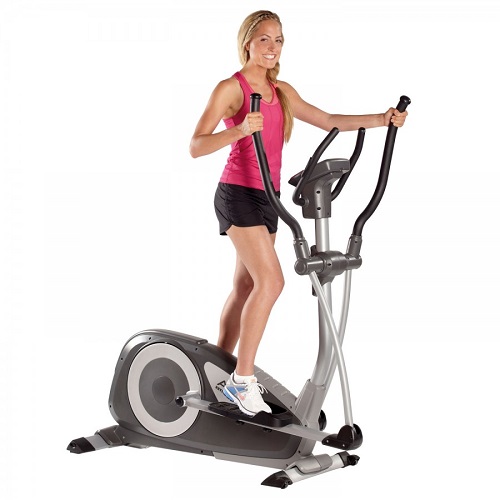Emergency preparedness is becoming extremely popular. Emergency preparedness is different from doomsday prepping. It is preparing for a number of possible emergencies. Whether these emergencies make you shelter in place, or you have to flee from your home, making a 72-hour bag can help ease you mind that you could be ready to go at a moment’s notice. These 72 hours bags are not for you to have to camp in the wilderness for weeks on end. They are just how they sound, bags that give you essential supplies to last for 72 hours.
So don’t get overwhelmed and think that your bag has to replace everything in your home. It is a bag that is ready in case there is no time to throw items together before you need to be out the door. It can be very easy to get carried away with what needs to be in your emergency 72 hour bag.
Considering what bag you have can be helpful. Everyone in your family should have a bag, even if you have a baby, they should have a bag filled with items that they would need specifically in a 72 hour time period. Before you pick out what bag you want for each person in your family, lay out what items everyone needs. This will then help you find a bag that will fit all the items in it. Empty weight of a bag versus filled up bags can be very different. Don’t just have your child try on the empty bag before putting all the items in it to see if they can carry it.
Vehicles may not be available for usage depending on the disaster or emergency. So you can’t rely on having a car to carry your 50 pound bag. Or have your infant’s bag be 50 pounds on top of your own, because you are now carrying two very heavy bags and an infant. Mindful packing and weight of the bag is important. A toddler in the family may carry less than a 10 year old would be able to carry, so figuring out what your family members are comfortable carrying.
Waterproof everything. Waterproof bag, waterproof containers, waterproof yourself. Rain can happen at any time, even during a disaster or emergency, so planning on making sure you have ways to combat the rain and making sure your items don’t become waterlogged is important. Ponchos are easily rolled up in a bag and are useful in rainy situations for covering your whole body.
Keep your bag organized. Figure out the best way to pack items in your bag. Pack and unpack a couple of times before settling on an organization. Pack like things together, make sure that heavy items are at the bottom so they don’t squish other more delicate items.
One of the main items to have in your 72 hour bag is a first aid kit. A regular prepackaged first aid kit will be fine. Just remembering the size and how it is packaged may play a role in fitting in your bag. Bandaids, cotton balls, tape, gauze, Tylenol, and a tourniquet may be things to make sure your kit comes with. Other items that you may include with your first aid kit are extra contacts, or a pair of prescription glasses. Any prescription medicines. Sunscreen and bug spray may also be good.
Hydration is vital to survival. Prepack a canteen or water bottle. Have water purification tablets, or water bottles to help purify water from the rain, or a stream. You may want to consider collapsible water bottles or water bags. You should have a way to have 3 liters of water per person. Whether this is prepacked water bags, or if you decide to have enough tablets to purify water. There are also straws that will filter water.
You will also need 3 days worth of food per person in your home. Food needs to be shelf stable, and high in nutrition. Purium foods such as the MVP Family, or MVP Sport are good choices of high protein superfoods, that are shelf stable and give a lot of the good nutrients and vitamins you daily require. Canned foods are also a good choice, though they can get heavy. You will also need to make sure you have a can opener or a multitool to open your cans. Protein bars, energy bars, peanut butter packs, and nuts are all good choices to have as well.
Chargers. To make sure you keep your cell phone charged it is important to find a charger. They have solar powered chargers that allow you to plug in USB cords into them. There are also hand crank generators.
Sleeping bags, or some kind of blankets to keep you all warm at night. Sleeping bags can be bulky. There are emergency thermal blankets that come in pouches, and there are mylar warming blankets that may be a more compact option.
Tools you may want some kind of multipurpose tool. Survival knife, hatchet or machete may be helpful in a wilderness situation. Parachute cord can also be helpful.
Toiletries that you may want. This could be a toothbrush, toothpaste, deodorant, and soap. Hand sanitizer. Baby wipes, even if you don’t have a child to pack for to help clean wounds, cuts, hands, and could be used instead of toilet paper. If you have a child still in diapers, make sure you pack enough diapers for 3 days.
Photo copy important documents and have them in your go bag ready to go. These could be copies of your driver’s license. Copies of the deed to your house and car. Insurance information. Birth certificates of your children. Marriage license. Road maps and topographic maps. Passports too could be packed in your go bag. All of these should be kept in a waterproof folder or bag.
Firestarter kit. Whether that is matches, lighter, or a firestarter kit. Fire may be important to keep warm, cook food, and provide light. Lanterns, flashlights, or headlamps also will be useful. They have solar powered flashlights and lanterns.
Random items that may be useful are safety pins, duct tape, zip ties, superglue, dental floss, a sewing kit, pepper spray, and petroleum jelly.
Make sure you have at least one full change of clothes per person. No one wants to be wet so if something were to happen in your 72 hour period where your clothes were wet, having a full change of clothing can help with fighting hypothermia. Long sleeved clothing can help with sun exposure, and safety from poisonous plants. Underwear and socks. A jacket in case of cold weather, bandanas, and warming blankets. Diapers for tiny children.
A 72 hour bag is not a bag to replace everything in your home. It is a bag readily available in case you need to flee or hunker down and have no time to gather what you need. Each person in your home should have a 72 hour bag with everything they would need to survive until FEMA or other help could arrive.
Want a 30 day food and nutrition supply? Purium has Food Supply Packages. Each package has 30 days of food and immune support for every member of your family. These custom kits of food are designed to feed you and your family for extended amounts of time. With an extended shelf life, these foods can be kept without refrigeration.
Emergency Preparedness - Learn what you need in a 72 hour bag! #HealthSurgeon
Sources:
https://www.ready.gov/kit?gclid=CjwKCAjwtIaVBhBkEiwAsr7-c3-bLS7n8883SPN0naYEinsVph0dzvaOmIyVOwZtTUaT-MR-RoSl4BoCSIwQAvD_BwE
https://bugoutbagacademy.com/free-bug-out-bag-list/
https://www.goodhousekeeping.com/home-products/a33605583/bug-out-bag-list/
https://www.bugoutbagbuilder.com/learning-tutorials/bug-out-bag
https://www.masterclass.com/articles/bug-out-bag-list









